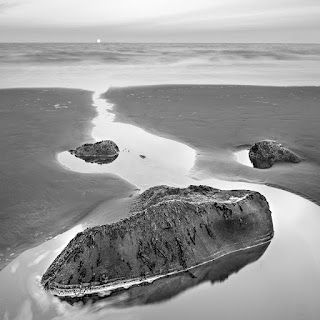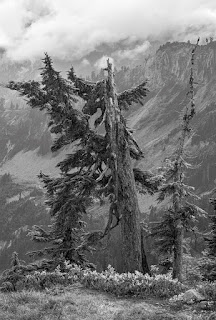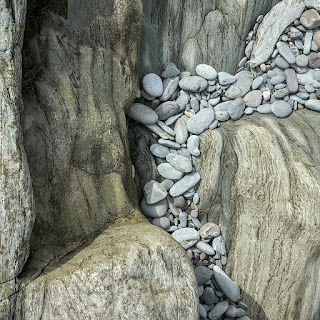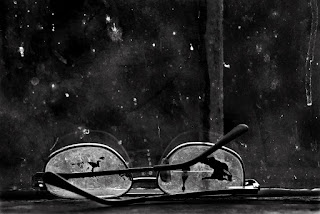"We can express our feelings regarding the world around us either by poetic or by descriptive means. I prefer to express myself metaphorically. Let me stress: metaphorically, not symbolically. A symbol contains within itself a definite meaning, certain intellectual formula, while metaphor is an image. An image possessing the same distinguishing features as the world it represents. An image — as opposed to a symbol — is indefinite in meaning. One cannot speak of the infinite world by applying tools that are definite and finite. We can analyse the formula that constitutes a symbol, while metaphor is a being-within-itself, it's a monomial. It falls apart at any attempt of touching it."
- Andrei Tarkovsky (1932 - 1986)
As I've written about before (though it has been a while since I last visited these themes), a deep profound regret of my life - as a photographer and son-of-an-artist - is not ever having trained my camera on my dad while he worked in his studio (my dad passed away in 2002). I've rationalized away this grievous - really, unforgivable - omission on my part in countless ways over the years. I was too young; I was "afraid" of what he'd say if I asked; I was always "going" to do it, when I had a better camera; I was waiting for a chunk of time I could devote entirely to this series; ... none of it makes sense, of course, in hindsight, and the opportunity - opportunities! - are now lost in the mists of time. Oh, what I wouldn't now give to have a few precious moments with a camera in hand and my dad hunched over one of his canvases!
The triptych above shows the only two images I have of my dad working as an art restorer (on the left, with a bonus capture of my mom - who passed away in 2017 - peering over the top left edge of the painting) and, in the center frame, as an artist - an image which I only recently "discovered" by chance while rummaging through old files. I could hardly contain my emotion when I saw this picture tumble out of one of my dad's old art books (that I still had wrapped in a crate I took from my mom's old house after she passed away, and hadn't seen in years). It was taken in the summer of 1984. The last frame shows what I believe is the image he was working on, on the easel (and appears in the watercolor section of the book my mom and I published on his art and life; note that the preview shows all of the pages in the book, in case some of you may may be interesting in perusing my dad's life's work).
Which brings us back to Tarkovsky's quote. I agree, generally, with the sentiment that images are indefinite in meaning (were this not so, all photography would be reduced to sterile one-to-one mappings and transcriptions); and couldn't agree more that metaphors are an artist's preferred language. Indeed, my dad was — still is — a living metaphor for seeing, discovering, and communicating ineffable realities. And, just as all metaphors reach far and deep, but fall "apart at any attempt of touching" them, the images my dad gifted the world are now all that remains of his existence; the inexorable march of time turns even the brightest light into wisps of dust. Of course, my-dad-as-living-metaphor — as being-within-itself — remains undisturbed, forever tuned to ineffable realities, and timeless. For me, he is a metaphor for the creative spirit that permeates our cosmos.
















































